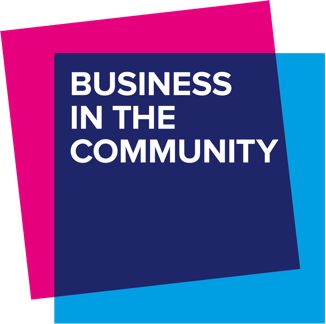UBS: enhancing learning in schools
This case study outlines the partnership between Business in the Community member, UBS, a Swiss multinational investment bank and financial services company, and the Bridge Academy in Hackney.
Background
The Bridge Academy has a student population in the top 5% for disadvantage. In 2007, when Bridge opened with 180 Year 7s, almost half of secondary-age students in Hackney had to leave the borough to find a school place, and Hackney was ranked worst for English, Mathematics, and Science. Global financial services firm, UBS co-founded the school to help address this stark local educational need.
Despite considerable economic development over the past two decades, Hackney is polarised, with areas of acute deprivation.
- 63% of Bridge students are eligible for Pupil Premium
- 70% of Sixth Form students have parents who did not go to university
The objectives of the partnership
The UBS-Bridge partnership aims to close the destinations and attainment gaps between disadvantaged and other students, to promote social mobility.
Current impacts include:
- 2019 KS4 results put Bridge in the top 10% of schools nationally for progress made by disadvantaged students.
- In 2020 82% of Year 13s accepted places at university; 26% accepted places at Russell Group (national average 12%) and 48% at top third universities (national average 17%).
- Five former Bridge students work at UBS.
Download the case study to learn more about the actions taken by UBS, the role of Bridge teachers, and how UBS volunteers have benefitted by being involved with the initiative.
How the partnership works
UBS volunteers support several curriculum subjects including Computer Science, Economics, Geography, Mathematics, and Modern Foreign Languages. The aim is to enrich the curriculum and show how subject learning is used in the world of work.
UBS volunteers also contribute to the Personal, Social, Health and Economic (PSHE) curriculum, including careers-related learning and financial literacy, and help students to improve their reading and Maths through the Breakfast Clubs. As a crucial skill, reading is in the school timetable for students in Key Stages 3 and 4.
The following examples show how UBS volunteers worked with Bridge teachers to co-create and contextualise aspects of the curriculum, including reading, in KS3 and 5. Projects are regularly evaluated with feedback from teachers, students, and volunteers; the feedback referenced in the impact sections is from recent surveys.
- Year 7 Maths and Reading Breakfast Clubs
- Reading Breakfast Club
- Maths Breakfast Club
- Years 8 & 9 Risky Business and Virtual Trading
- A-level maths workshop
During the lockdown, it was agreed that virtual clubs would not be effective and so to improve students’ maths and reading skills and enjoyment, the students received letters and books from the volunteers.
Feedback
- Teachers report the A-level Mathematics workshops are inspiring, meaningful, and enriching, and that students often mention them in their personal statements.
- Student feedback found 100% students said the workshops were enjoyable and 90% said they improved their understanding of how Mathematical theory can be applied in real life.
- Evaluation of the Maths Mentoring Club found 100% of students enjoyed it and said it improved their Mathematics skills. Teachers report the one-to-one support helps students make academic progress.
- Since the Sixth Form opened in 2012, Mathematics has been one of the top four most popular A-levels, in all years bar one.
- In the last four years, Bridge has twice been in the top 1% for student progress in A-level Mathematics.
- Since 2014, 45% of Bridge Year 13 leavers going to university in the UK have accepted places to study STEM degrees, and 10 students have gone to Oxford or Cambridge, eight to study STEM subjects.
Download the case study to find out more about the steps taken to create the projects.

What if no one was left behind?

